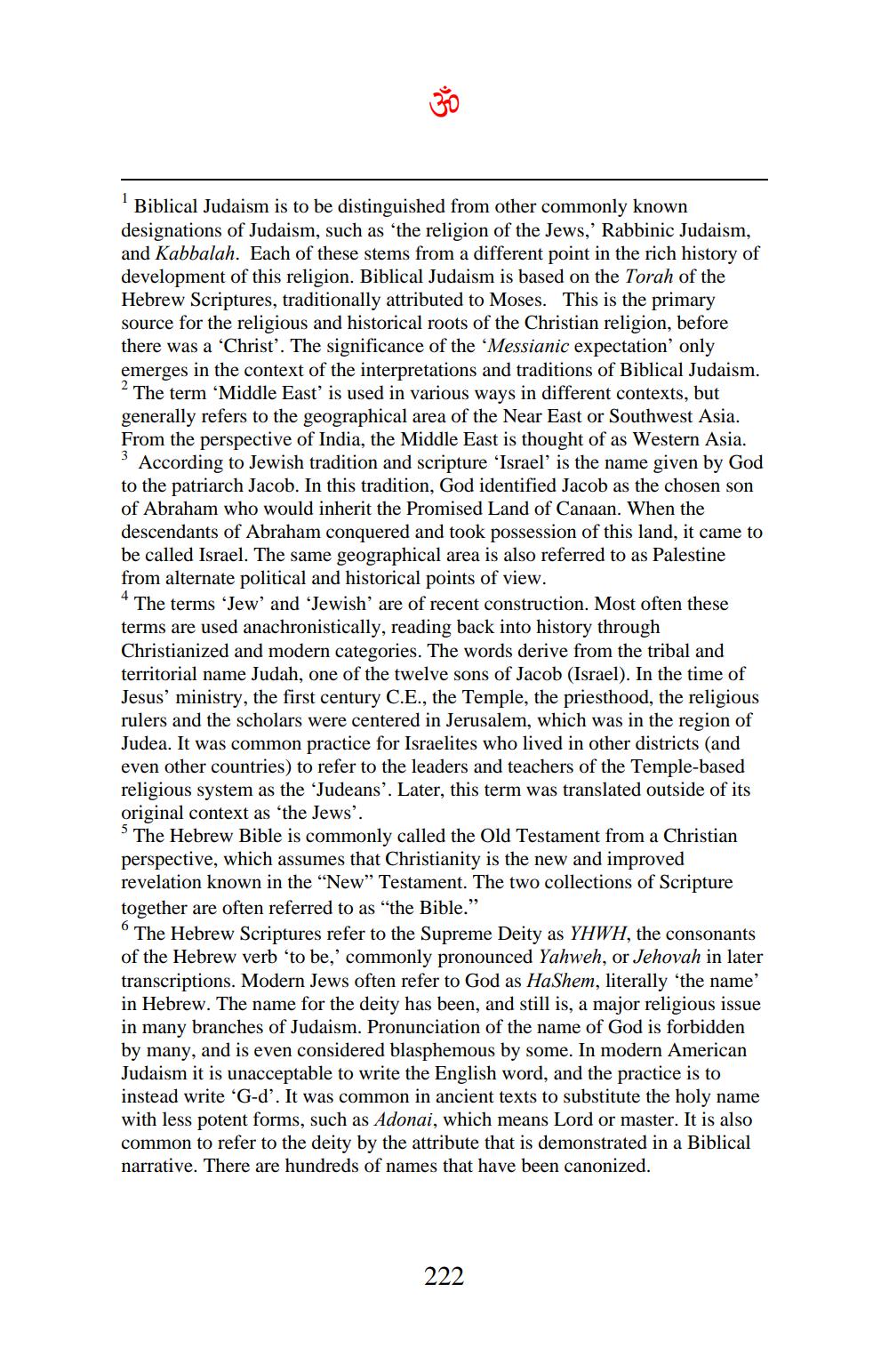________________
Biblical Judaism is to be distinguished from other commonly known designations of Judaism, such as the religion of the Jews,' Rabbinic Judaism, and Kabbalah. Each of these stems from a different point in the rich history of development of this religion. Biblical Judaism is based on the Torah of the Hebrew Scriptures, traditionally attributed to Moses. This is the primary source for the religious and historical roots of the Christian religion, before there was a 'Christ'. The significance of the 'Messianic expectation only emerges in the context of the interpretations and traditions of Biblical Judaism. - The term 'Middle East' is used in various ways in different contexts, but generally refers to the geographical area of the Near East or Southwest Asia. From the perspective of India, the Middle East is thought of as Western Asia.
According to Jewish tradition and scripture 'Israel' is the name given by God to the patriarch Jacob. In this tradition, God identified Jacob as the chosen son of Abraham who would inherit the Promised Land of Canaan. When the descendants of Abraham conquered and took possession of this land, it came to be called Israel. The same geographical area is also referred to as Palestine from alternate political and historical points of view. 4 The terms Jew' and 'Jewish' are of recent construction. Most often these terms are used anachronistically, reading back into history through Christianized and modern categories. The words derive from the tribal and territorial name Judah, one of the twelve sons of Jacob (Israel). In the time of Jesus' ministry, the first century C.E., the Temple, the priesthood, the religious rulers and the scholars were centered in Jerusalem, which was in the region of Judea. It was common practice for Israelites who lived in other districts (and even other countries) to refer to the leaders and teachers of the Temple-based religious system as the 'Judeans'. Later, this term was translated outside of its original context as 'the Jews'. * The Hebrew Bible is commonly called the Old Testament from a Christian perspective, which assumes that Christianity is the new and improved revelation known in the "New" Testament. The two collections of Scripture together are often referred to as "the Bible.”
The Hebrew Scriptures refer to the Supreme Deity as YHWH, the consonants of the Hebrew verb 'to be,' commonly pronounced Yahweh, or Jehovah in later transcriptions. Modern Jews often refer to God as HaShem, literally 'the name' in Hebrew. The name for the deity has been, and still is, a major religious issue in many branches of Judaism. Pronunciation of the name of God is forbidden by many, and is even considered blasphemous by some. In modern American Judaism it is unacceptable to write the English word, and the practice is to instead write 'G-d'. It was common in ancient texts to substitute the holy name with less potent forms, such as Adonai, which means Lord or master. It is also common to refer to the deity by the attribute that is demonstrated in a Biblical narrative. There are hundreds of names that have been canonized.
222




